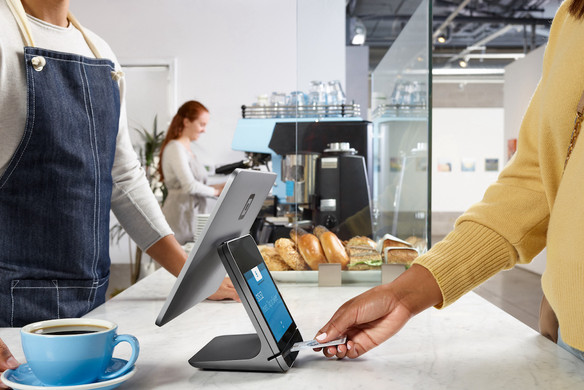Table of contents
CRM stands for customer relationship management, and it’s an online system for managing your relationships with existing and potential customers.
A lot of acronyms are just noise and really mean nothing for your day-to-day as a small business owner. But if you want to grow your sales, it’s important to drill down on CRM.
What is CRM and what does CRM stand for?
The backbone of CRM is the ability to store a directory of your customers’ information online through CRM software. The acronym stands for Customer relationship management, commonly shortened to CRM.
Why use CRM software?
If you’re now manually collecting customers’ contact information and entering it into an Excel doc, you understand how big of a time-saver this is. The latest CRM tools (including Square Customer Engagement) store your customers’ information in the cloud — which means it’s accessible anytime, across any device. Bye-bye clipboards at the countertop.
With everything in a centralized place, you have a command center to help you deepen your relationship with your customers after they’ve left your store. Most CRM solutions are hooked up to email marketing templates so you can easily send groups of customers things like promotions or event announcements. Some CRM software also includes a customer feedback tool and support component — a place where you can respond directly to customers who have written in for one reason or another.
But CRM’s special sauce is all the insights it can help you glean about your customers. CRM tools can track powerful data about how people interact with your business on and offline. You can analyze how many people opened a certain email, for example, or how many of them bought stuff as a result of what you sent.
If your solution includes a feedback or support center, there’s likely data around customer sentiment, as well as the most common complaints — so you can focus on the key areas where you need to improve.
How can a CRM solution help you?
Pouring over all the numbers in your CRM helps you spot trends in your customers’ behavior and sentiment — which is invaluable as you make important business decisions. All this data can help you respond better to customer feedback, create more effective email marketing campaigns, and overall, improve your business. (Square’s Customer Engagement suite of tools offers feedback, email marketing, and customer insights.)
Get Started with Square Email Marketing
Email marketing software that turns occasionals into regulars
What are common CRM features?
The most effective CRM systems capture a range of quality customer information to help build robust profiles for everyone in your database. Commonly tracked data includes:
- Customer Contact Info: customer name, email, address, phone number, preferred mode of contact (email, text), and how the customer learned about your business (online search, store visit, social media—all of which can be gleaned from signup forms)
- Complete Transaction History: items purchases, value of purchases, time of purchases, and method of payment (all collected at point of sale)
- Demographic Info: region where customer lives, birthdays, income levels, technology usage, hobbies and interests (can be gleaned from signup forms or collected over time with repeat customer interaction)
- Customer Interaction Details: feedback on what customers like, what types of products or services they purchase most often, overall sentiment towards your business, type of messaging they respond to best (these things can be gleaned from surveys, ratings, reviews, and recorded dealings with customer support)
What should a CRM cost?
It’s difficult to say what a CRM should cost. Not the answer you want, but it’s true. Initial CRM costs vary widely, so the only way to determine what a CRM for your business costs is to research vendors and then talk to them directly.
When you do start researching CRM options, you want to look at the software cost, the hardware cost (i.e., a computer to run the software), any customization costs (does it cost money to add additional tools or format the directory in a specific way?), training costs, and support costs.
Many CRM software vendors charge a monthly fee per user. With Square Customer Engagement, the core CRM features are built right into our POS for free: Customer Directory & Feedback. Square sellers have the option of then adding Square Email Marketing (starts at $15/month) or Square Loyalty (starts at $25/month).
What are CRM tools?
CRM tools are applications that tap into your customer directory so you can better communicate with your customers. Some examples of CRM tools include:
- Email marketing: includes targeted messages about promotions, sales, collection launches, new store openings, birthday announcements, and other communications tailored to engage customers
- SMS messages: texts can be used to confirm appointments, update customers about service changes, and make occasional announcements about timely information
- Customer retention tools: loyalty programs, personalization, promotions, gamification; a Harvard Business Review study has shown that increasing customer retention by 5% can ultimately increase profits by 25% to 95%
- Customer support: making your business available to customers 24/7, whether through online chats, 800-numbers, or email support; the less you leave your customers hanging, the more likely they’ll come back to you again, even if they’ve had a problem with a product or service in the past. Using Twitter to reply to customers: makes customers, especially Millennials, feel heard in real-time and lets them know that your business values each individual customer enough to respond to personal inquiries via a social and very public platform
Of all the things your CRM can do for you, email might be the most important for growing your sales. Some data to illustrate: A recent study by consulting firm McKinsey & Company found that email is nearly 40 times more effective than Facebook and Twitter combined for acquiring customers. Which makes sense when you think about it — email is arguably a more direct avenue to reach people than are social media posts.
In fact, the same McKinsey study found that 91 percent of all U.S. consumers check their inbox daily. What’s more, the study found that when email prompts purchases, the average order is 17 percent higher.
Should you get CRM software for your business?
Should you get CRM software for your business? In most cases, it’s time to jump on the CRM bandwagon. Joanne Correia, the research vice president at Gartner Group, predicts that “CRM will be at the heart of digital initiatives in coming years.” And the authors of a recent Gartner study concluded that if you don’t have a cloud-based CRM solution on your roadmap, you’re playing things too safe.
Square’s CRM software is uniquely positioned to help brick-and-mortar stores grow sales. Learn about how you can put Square Customer Engagement to work for your business. And if you have any questions about Square’s CRM software, get in touch any time.
![]()










